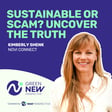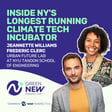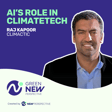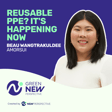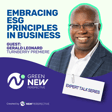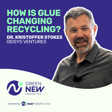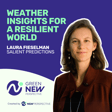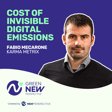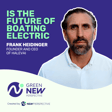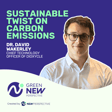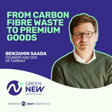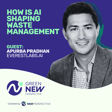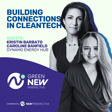
Podcast With 75F: Revolutionizing Climate Control With Smart Buildings
Discover how 75F is revolutionizing the commercial building sector to combat the massive energy waste in heating and cooling, which accounts for 30% of global energy consumption. Join marketing expert Dave Koerner as he unveils how smart technology and a commitment to sustainability are reshaping business practices.
This episode delves into the importance of authentic cleantech communication and 75F's innovative approach to reducing greenhouse gas emissions. Get ready for an enlightening discussion on the future of building automation and its impact on our planet.
📚 RESOURCES & LINKS
========================
- 75F Website: https://www.75f.io
- 75F LinkedIn: https://www.linkedin.com/company/75-fahrenheit
- 75F YouTube: https://www.youtube.com/@75Fvideos
Guest: David Koerner, VP Global Marketing at 75F
👉 Interview with David: https://www.npws.net/podcast/smart-buildings
🌍 SUSTAINABILITY PODCAST CREATED BY NEW PERSPECTIVE
========================
This podcast is proudly sponsored by New Perspective Marketing, a dynamic growth marketing agency in Boston, MA, celebrating 20 years in business. We help sustainably focused B2B organizations grow their brands and scale up revenue. If you or your organization is looking to grow, visit npws.com for more info.
🎧 SUBSCRIBE TO OUR PODCAST
===========================
- Spotify: https://bit.ly/3PSWIyI
- Apple Podcasts: https://bit.ly/3RvlHte
- Youtube: https://bit.ly/3RDzkXg
- Deezer: https://bit.ly/3PvQaof
- Amazon Music: https://bit.ly/3PQlijS
- Zencastr: https://bit.ly/48xt75s
💬 FOLLOW US ON SOCIAL MEDIA
============================
- Instagram: https://www.instagram.com/greennewperspective/
- Twitter: https://twitter.com/gnperspective
- Facebook: https://www.facebook.com/greennewperspective
- TikTok: https://www.tiktok.com/@greennewperspective
Host: Dunja Jovanovic
Executive Producer: Marko Bodiroza
Creator: Nathan Harris
#cleantech #smartbuildings #smarthome #iot #thermostat
